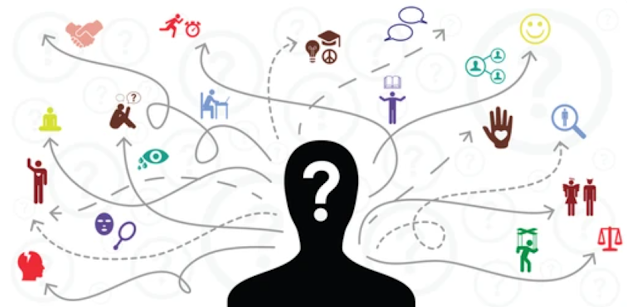The Psychology of Consumer Behavior in Internet Marketing
Understanding consumer behavior is crucial for effective internet marketing strategies. By delving into the psychology behind consumers' decision-making processes, businesses can tailor their marketing efforts to connect with their target audience on a deeper level. In this article, we will explore the key psychological factors that influence consumer behavior in the context of internet marketing and provide insights on how to leverage them to drive engagement and conversions.
Cognitive Processes:
Consumers engage in various cognitive processes when making purchasing decisions. These processes include perception, attention, memory, and decision-making. To leverage these cognitive processes in internet marketing, businesses should focus on creating attention-grabbing and visually appealing content, utilizing clear and concise messaging, and providing memorable experiences that resonate with consumers.
Social Proof:
The concept of social proof suggests that people tend to rely on others' opinions and behaviors when making decisions. In the online world, social proof can be powerful in influencing consumer behavior. Businesses can leverage social proof by incorporating customer testimonials, ratings, reviews, and user-generated content to establish trust and credibility. Highlighting the popularity or positive experiences of others can persuade potential customers to make a purchase.
Scarcity and Urgency:
The principle of scarcity taps into consumers' fear of missing out (FOMO). By creating a sense of limited availability or time sensitivity, businesses can drive a sense of urgency and motivate customers to take immediate action. Limited-time offers, exclusive discounts, or limited stock notifications can create a sense of urgency, prompting consumers to make a purchase before the opportunity is gone.
Emotions and Branding:
Emotions play a significant role in consumer decision-making. Businesses can leverage emotions to create a strong brand connection and influence purchasing behavior. By understanding their target audience's emotional triggers, businesses can create marketing campaigns that evoke specific emotions, such as joy, excitement, nostalgia, or trust. Emotionally resonant storytelling, relatable imagery, and personalization can enhance brand engagement and drive conversions.
Personalization and Customization:
Consumers value personalized experiences. By tailoring marketing messages, product recommendations, and offers to individual preferences and needs, businesses can create a sense of relevance and enhance customer satisfaction. Utilize data-driven insights to segment your audience and deliver personalized content through email marketing, targeted ads, and website personalization. Personalization fosters a stronger connection with customers, increasing the likelihood of conversions.
Influencer Marketing:
Influencer marketing taps into the psychological concept of social influence. Consumers often look to influencers for guidance and recommendations. Partnering with influencers who align with your brand can provide social proof, increase brand awareness, and influence consumer behavior. Leveraging influencers' authority and credibility can significantly impact purchasing decisions, particularly in industries where trust and expertise play a significant role.
Behavioral Economics:
Behavioral economics combines psychology and economics to understand how consumers make decisions. Concepts such as loss aversion, price anchoring, and choice architecture can be utilized in internet marketing to influence consumer behavior. Businesses can frame pricing, present options, and leverage cognitive biases to guide customers towards desired actions.
User Experience and Convenience:
Consumers value seamless and convenient experiences. Businesses that prioritize user experience across their website, mobile apps, and digital touchpoints can positively influence consumer behavior. Simplify the purchase process, minimize steps, and provide clear instructions to reduce friction. Streamline the checkout process, offer guest checkout options, and optimize for mobile devices to enhance convenience and increase conversions.
In conclusion, understanding the psychology behind consumer behavior is essential for effective internet marketing. By leveraging cognitive processes, social proof, scarcity, emotions, personalization, influencer marketing, behavioral economics, and prioritizing user experience, businesses can connect with their target audience on a deeper level, drive engagement, and increase conversions. By aligning marketing strategies with consumer psychology, businesses can create meaningful and impactful experiences that resonate with their customers in the competitive online marketplace.












